
|
Vol 71 |
Page 12 |
Privacy Policy | Editorial Policy | Profit Policy | Join the Association | List of Members | Contact us | Index | Links
Back Go to page: 1 2 3 4 5 6 7 8 9 10 11 12 13 14 15 16 17 18 19 20 Forward
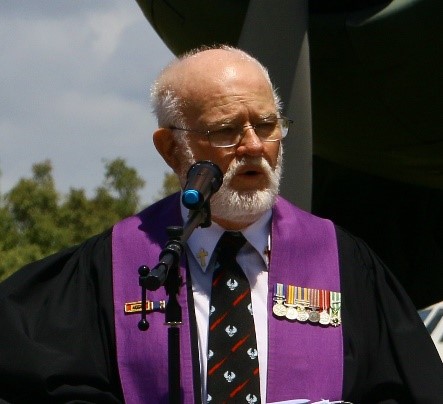
Arthur’s Articles.
In the previous edition, 27 Radio Mechanics Course had paused their studies to prepare the Base at Ballarat for handover to the Government as the entire School of Radio was to move, holus bolus, to RAAF Base, Laverton. I pick up the story as recorded in my memoires.
‘Grandad, You’re a Legend’, a title inspired by two of my grandsons who gave me a coffee mug inscribed with these words, several years ago. Very few people, other than my grandsons, may believe that quote. All I can do is try to live up to their reason for purchasing that coffee mug for me. (Oh, you have one too?)
The other advantage of quoting from my book is that I commenced writing this manuscript almost twenty years ago when facts about the School of Radio era were closer to the surface of my hippocampus for matters about those days in the middle years of the 20th Century than they are now in the 21st Century!.
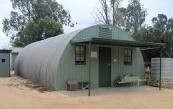
We drove our private cars in convoy from the gates of RAAF Base Ballarat one April morning of 1961 and arrived at RAAF Base Laverton just off the main Melbourne to Geelong Highway about noon. Given no time to relax, we were soon in the classroom that afternoon to continue our radio theory studies where we had left off in Ballarat.
Eight of us were allocated to a Nissen hut, that is, looking sideways at it, it looked like a 44-gallon drum cut in half and turned on its side. That hut was called ‘230’ and I wrote a poem about it during our stay there from the April until we graduated in the following June. (With apologies to those I may have identified as one of my eight roommates.)
|
When all the camp is wide awake And strolling to be fed Two thirty is serene and calm For they are still in bed.
A violent ringing fills the room That would cause the dead to rise. But not our hut, we lay quite still, Except one blinks his eyes.
This chap is usually Bob McKee, Who thinks it quite a sin, For him to wake at seven fifteen, While everyone else sleeps in.
Fry, after he counts from ten to nought, Jumps out to the floor. And after a quick glance at his watch, Wishes he’d done so before.
|
Slowly the rest crawls out of bed; Seven, but not them all. Who stays in bed till quarter to eight? Nobody but John Ball.
Unshaven, sleep ridden and hungry, He’s a picture most forlorn. But that’s his way to start the day And his greeting to the morn.
But one day it will happen, And will surely be a crime. To wreck his great tradition By waking up on time!
|
In retrospect, I should have included the other five fellow’s names in that poem. Some sixty years later, it is a much harder call. Apart from Bob McKee, in a transferee from one of the fitter trades, and John Ball, another direct entry like me, we had ‘Fletch’, from 544 Recruit Course and originally from Claremont, a young fellow, Bruce, from Violet Town in northern Victoria, John, (Monty), from Kalinga in Brisbane, Mike who later became a fighter pilot, and Ted, from Cowra, who later re-mustered to become a Physical Training Instructor, (PTI).
After my retirement from the RAAF in 1986, John Ball phoned me and we still had a giggle about that poem, so I am sure John, wherever you are, will not mind me quoting that ignominious recollection of your late waking while we were on course!
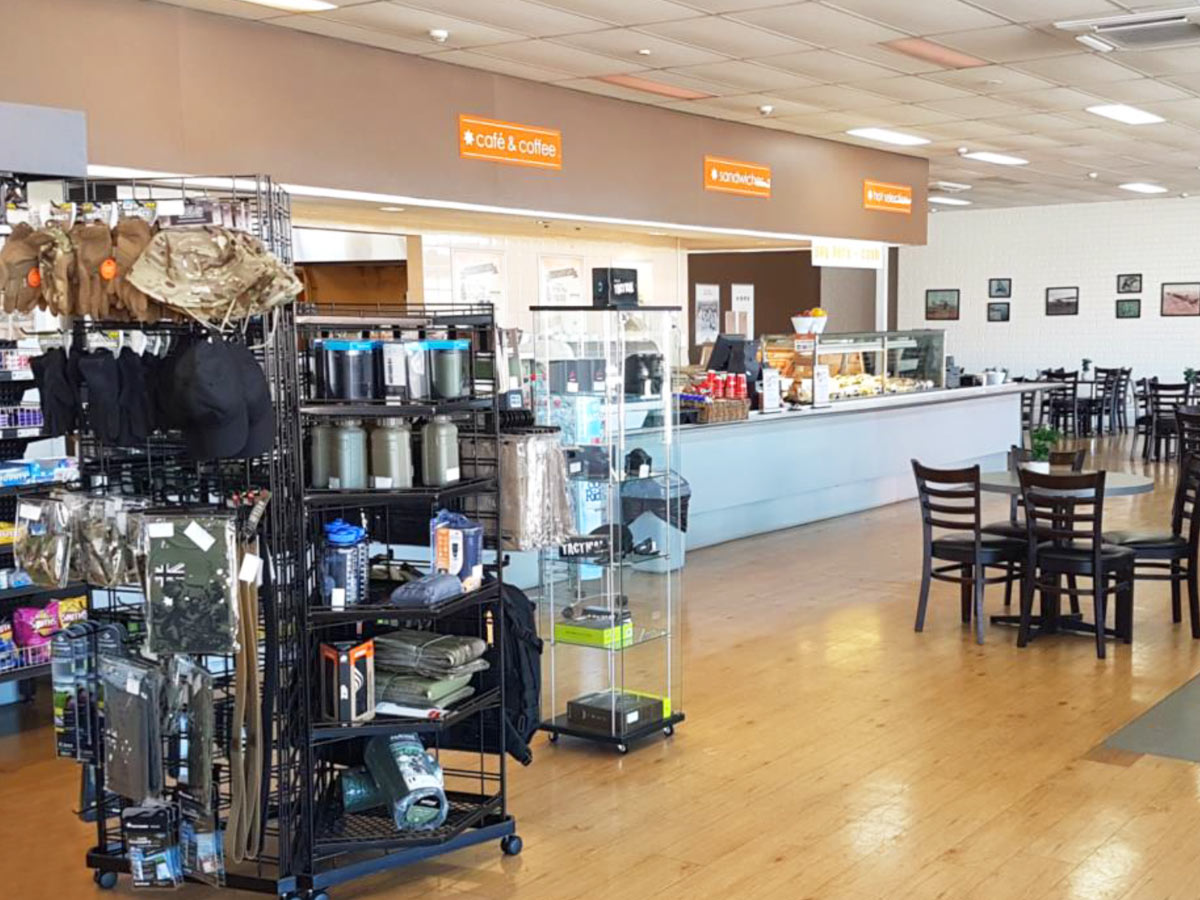
Our studies progressed during the day, and our nights were not spent pouring over books but in the dry canteen, where our course mates ‘fraternised’ with the young ladies (WRAAFs) who were undergoing several courses at Laverton from the WRAAF recruit courses to trainee Stewardesses plus the many WRAAFs who were at Radio School undergoing telephonists’ courses as well as other telegraphy courses.
Romances blossomed then faded as the two groups were mixing their out-of-school study time with socializing in this new experience for most of them – a new life in uniform, meeting persons with similar hopes, dreams, aspirations and ambitions for their long-term future with the RAAF, both in Australia and overseas. I was amazed at the number of nicknames that this group used.
I recall that one night I had given two WRAAFs, a lift home from the dance at RAAF Base Point Cook, a base where I was to serve many postings in the coming years. One young lady introduced herself only by her nickname. We had just met the girls and agreed to provide a lift back to Laverton. We dropped the girls off at the ‘Wraffery’, the colloquial term for their residence.
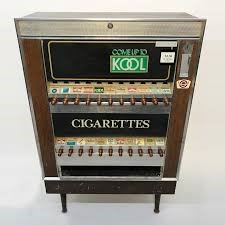
My fellow hut-mate and I returned to Hut 230 not knowing that the cigarette vending machine outside the dry canteen had malfunctioned and was not only spewing out cigarettes but also coins, without any need for an input of any money.
Word quickly spread around the barracks and soon a huge crowd had gathered at the malfunctioning cigarette machine. Before long, the vending machine was empty – of both cigarettes and cash.
The next day, the RAAF Service Police were hot on the trail, investigating the theft of the ASCO, (Australian Services Canteen Organization,) property. Our class members were spoken to by the RAAF Service Police, one by one. When my turn came to be interviewed, the Police asked me to explain my movements on the previous night. I told them I had been at the Point Cook dance and had brought two WRAAFs back to Laverton. Questioned as to who the two WRAAFs were, I said I only knew one of them by her nickname. “Oh,” said the cop, “you must be ‘Oliver’?”
The Police never found the culprit or culprits they were looking for. They suspected one or two persons who had nicked 300 packets of cigarettes. What they should have been looking for was possibly 300 persons who had nicked one packet of cigarettes.
On the topic of nicknames, most students received one either from another school friend or from someone in their class. These nicknames usually lasted for many years. A guy from a class after ours gave me my nickname. ‘Oliver’ as in ‘Oliver Cool’ was a nickname that stuck with me for a few years. His was ‘Mumbles’ which highlighted his manner of speaking, although, to this date, I could not tell you his real name. (If you read this, ‘Mumbles’, please tell me your real name?)
Talking of nicknames. In an earlier edition, I spoke about the way ‘Jumbo’ Jordan assisted my wife when I was in Heidelberg Hospital. ‘Jumbo’ was also a former Radio Technician and later a Radio Officer. I have since been told his given name. Thank you, Barry Jordan.
One Friday night, the usual group were gathered in the dry canteen when one of the WRAAF’s who had just broken up with her boyfriend, announced that she wanted to go home. She had arranged with the former boyfriend to take her home which was in a bayside suburb of Melbourne. She had missed public transport, so ‘hero’ Arthur came to the rescue and offered to take her home.
We had no sooner left Laverton when the typical early winter Melbourne fog set in. By the time we reached her home, the fog was a ‘pea-souper’. Her mother said I should not try to attempt to drive back to Laverton and invited me to stay the night. I respectfully declined her offer. I slowly drove back to Laverton, through dense fog, to the welcoming warmth of my own bed in Hut 230.
At Radio School, Laverton, we had what we students considered a harsh disciplinarian, a Warrant Officer Disciplinary, who had a gruff voice and obtained a distinct pleasure out of making life for the student as miserable as possible, if one dared offend him. On morning parades, and at bedside inspections, if he could nit-pick one small infraction, he would pass immediate punishment to meet him after school finished on Fridays, when our weekend leave had begun, at a Defaulter’s Parade on Radio School’s parade ground which became known as ‘this WOD’s Half Hour’.
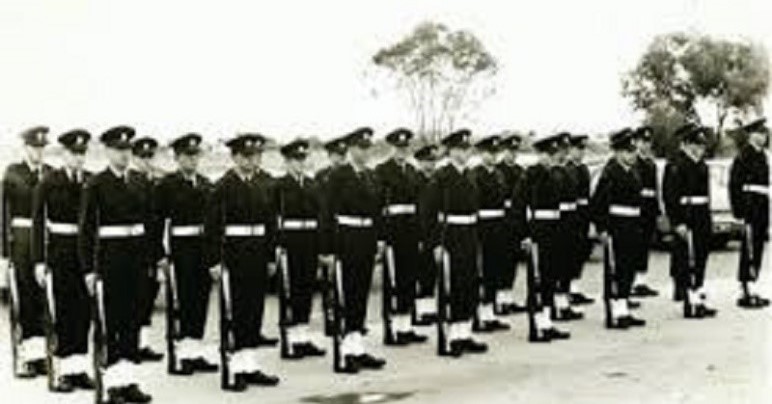
A WOD’s Defaulters Parade?
In those days, a British comedian had a comedy show on the radio by that name (Hancock’s half hour). The radio show was a fun time, unlike the Warrant Officer Disciplinary’s Half Hour’, which was anything but fun! I trust I have not been too hard on him because under his tilted cap to the side and rear of his head, he probably was a pleasant man, and a jolly good WOD.
The members of Hut 230 spent a good deal of time debating issues when we were supposed to be studying. One night we were debating an issue which should have come under the ‘taboo’ subject of no ‘Politics, Sex, or Religion’. The discussion went on until well after midnight.
At lunch time next day, the other seven returned to Hut 230 ahead of me for some unknown reason. As I caught up with them, they had cornered the Padre and sought his verdict on the matter that we had debated long into the night. The Padre’s wisdom bolstered the other seven’s conclusion. As I approached, the seven chorused, ‘Hey, Padre, you tell him!”, for as the Chaplain had resolved the issue in the majority favour. I was left keep my views to myself as I was then the ‘odd man out’ in that friendly debate. Possibly for settling a Hut 230 dispute, that Padre was rewarded by his earthly masters to become a Principal Air Chaplain in later years.

I always remember how Hut 230 occupants were forever exercising their mental waves on any topic or incident. How we ever studied enough to pass our course is beyond me, but how the eight of us never finished up in the hallowed halls of Parliament further escapes belief.
In Laverton, we spent time in the workshops, which were manned by a Warrant Officer Wishart and a Sergeant Cross. I will admit to being hopeless with my hands, a fact my dear mother and later, my wife discovered. Many a motor mower, vacuum cleaner or other electrical item sat in my mother’s, my mother-in-law’s and later in our home, waiting for me to put all the spare parts back into the machine from which I had taken them!
My salvation in the Air Force was when I underwent a twelve-month course in the Vietnamese language and re-mustered from Radio Mechanic to Linguist in December 1965. I am sure the Air Force also found a good deal of relief when I was no longer free to attack their valuable radio equipment as a Mechanic!
I tell this story because I met up with Sergeant Cross after my discharge in 1986 when I held a two-year contract with the Lutheran Church of Australia, (Queensland District), as Head of their Welfare Department. Not being a member of an LCAQD church gave the Church officials some grief, not to mention I could not use their normal title of ‘Director of Welfare’ as a ‘Non-Lutheran’ (in fact, they referred to me in good humour as a ‘Loose-eran’.) The Lutheran Hierarchy chose to give me an exclusive title for those two years, ‘Administrator to the Welfare Council’. (“What’s in a name…?” C.J. Dennis wrote in ‘A Sentimental Bloke’.)
In LCAQD I had several departments under my control, Aged Care Facilities being but one department which fell into ‘Welfare’. Former Sergeant Cross was the Chairman of one of the Aged Care committees under my supervision. He said he remembered me from among all the Radio School students that passed through his workshop. He said he had never seen a ‘kid’ try as hard as me but everything I touched, I would ‘stuff up’. (I thought, “Join the queue of those who assessed my handiwork in that fashion!”)

In those days, we would have to file a piece of metal flat. I would spend hours in making that piece of metal perfectly flat, but on the last stoke, I would slide off the edge, consequently ruining my project. Likewise, we would have to solder twelve pieces of copper tubing into a cube. When we were finished, the instructor would stand on it and if our cube did not collapse, we passed. I was fortunate that WOFF Wishart or SGT Cross did not sue me for possibly breaking their ankle when my cube collapsed, as it did on almost every occasion!
The adage of ‘The course that plays together, stays together,’ was most apt for our course. We had a course member who left the course in the early stages, who lived in Drysdale, not far from Geelong. Coincidentally, two Equipment Assistants who were on my course at Rathmines, and then posted to 1 Stores Depot at Tottenham, came from Drysdale. These two returned to Drysdale of a weekend and joined me in our course’s social activities. This former course member invited our course to his home, where several of us returned regularly to spend the weekend in Drysdale.
On another occasion, I was invited to the Engagement Party of one of the members of my course at Rathmines. He was also posted to 1 Stores Depot at Tottenham as an Equipment Assistant and had met a lovely girl from West Essendon, with whom my wife and I are still in contact these days. As I opened the invitation to their Engagement Party in class, my classmates were anxious to know how I had managed to contact the local population of the opposite sex! Their curiosity led me to reveal that the party was at the girlfriend of my Rathmines course member’s home at Emerald Street.
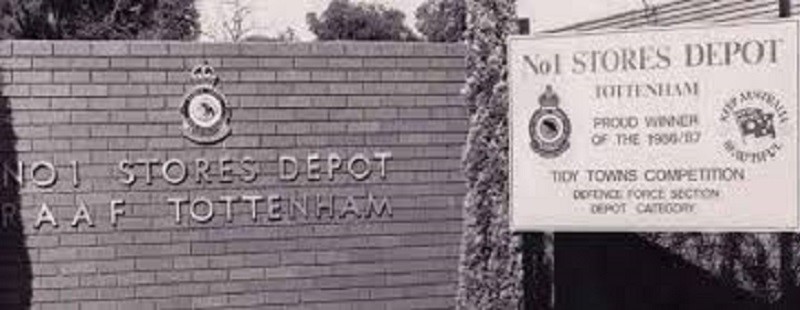
That night, I arrived at the engagement party at West Essendon, which was the first occasion I had been in that part of Melbourne. During the evening, who should appear at the front door but my Hut 230 friends! They had remembered that it was a street with the name of a precious stone. They arrived at Ruby Street then noticed a party going on in the next street, Emerald Street. Unbeknown to me, but discovered by the Hut 230 crowd, all streets in that area were named after precious stones.
The invited party goers thought it wonderful that the newly engaged Air Force member in whose honour the engagement party was called, was so popular in the Air Force that several of his mates turned up as gate crashers. A good night turned out to be a great night, all thanks to the plotters in Hut 230 to gate crash the engagement party or was it to simply to stir me up? I put it down to ‘Course bonding’, and bond we certainly did.
Tim Gear had joined our course for the Equipment phase, having been a PMG Technician and was granted ‘prior learning’ status for the theory part of our course. Tim met, courted then married a local Drysdale girl, Mary.
But we had two tragedies on our course. Five of us received our initial postings to Amberley, including Tim. Tim left Mary behind in Drysdale until he found a Married Quarter for them around the Amberley area. Sadly, Tim drove through the night to Amberley and in the early hours of the morning was involved in a single vehicle accident at Gladfield, just out of Warwick. Tim was killed instantly.
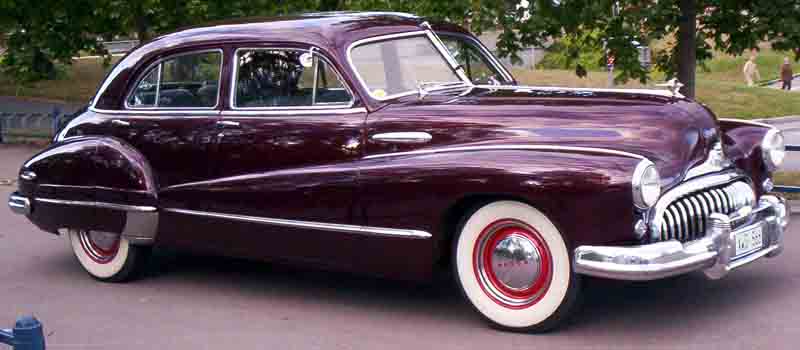
The first tragedy also involved a former PMG Technician who came from Sydney and like Tim, was excluded from the theory phase but joined our course for the Equipment phase. He had a black Buick straight eight sedan, a powerful machine, of which he was most proud. He took three airmen and one WRAAF as passengers to Sydney, leaving immediately after ‘stand down’ one Friday afternoon.
Our group was, as always, gathered in the dry canteen when we saw on the News that a serious car accident had occurred at Holbrook in New South Wales when four people were killed. We reasoned that the Buick, super powerful though it was, could not have possibly taken them to Holbrook in that short time. Sadly, it was the Buick which crashed head on into a truck. Only one passenger survived. After a lengthy period in hospital, he came back to Radio School and was back coursed to complete his Radio Mechanic training.
Our final exams were soon upon us and our days at Radio School (Mark One,) would soon be over. Our class made history by having the largest percentage of students ever to fail at the first attempt at the final test, so it was back to the study books. Lazy nights at the ASCO dry canteen were banned, and surprise, surprise, a week later, the remainder of the class passed the final exams at the second attempt. Then it was a week of returning books and obtaining final clearances until our postings were announced.
Five of us were posted to RAAF Base, Amberley. Two had been posted to No. 82 Wing, to work on Canberra bombers as Radio Mechanics (Air); two were posted to Base Squadron, Amberley as a Radio Mechanic (Ground, although Tim Gear never made it,) and I was posted to No. 3 Aircraft Depot as a Radio Mechanic (Air) and worked on Canberra bombers and Sabre fighters doing major servicings as well as the odd service on the Unit’s Dakota (DC-3, or ‘Gooney Bird’,) and the unit’s twin-boomed Vampire. (Does that date me?)
After joining the Air Force in the previous August, I was finally ‘let loose’ to work on our nation’s major defence assets. All those months of training were about to pay a dividend. I was a tradesman! A Radio Mechanic! The ‘Recruit’ had been dropped from my title. Aircraftsman Arthur Fry – the world is at your feet! But not for long!
People who impressed me in my Service Career
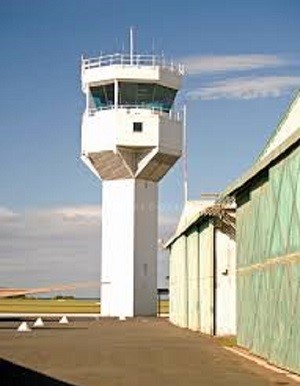
SATCO (Senior Air Traffic Control Officer,) Base Squadron Point Cook, circa 1975, Squadron Leader Jack Haynes, was one jovial giant that I will never forget.
Sadly, Jack is no longer with us. On his retirement, Jack and Doreen left on a road trip hoping to call on Annette and me in Ipswich, but he took sick and never crossed the Victorian border, the first time they set out to drive north.
When Jack recovered, they started out again and made it to Ipswich where we enjoyed several days with them. There is one yarn about Jack, but I am sure others could add to the great man he was, both with his jocularity and his love of playing practical jokes.
The Commanding Officer of our unit decided that a form of bonding for a non-flying unit would be to have unit cuff links. Cuff links with the unit crest for the men; pendants with the unit crest for the ladies.
The C.O. made a habit of calling a ‘Commander’s Call’ in the Officers’ Mess, (after hours, of course,) to check if his officers in the unit obeyed his direction to wear the squadron cuff links at all times. He appointed me as his ‘Sheriff’ to check if all officers were wearing their squadron cuff links for after all, I had the designation as Officer-in-Charge of the Base Police, as one of the several ‘hats’ I wore at that time.
As I approached Jack Haynes who was wearing his ‘drabs’, therefore he had no long-sleeved shirt to wear his cuff links. As he obviously was about to suffer the ‘penalty’ , (usually a bottle of some variety of the fruit of the vine that the Officers’ Ness bar sold,) and which was at the CO’s discretion for not wearing the said Squadron cuff links, Jack put his hand in his pocket and pulled out a very long chain which he clutched in his massive hand then flung the chain across the floor of the Mess past the Commanding Officer.
He said to me, “Follow that to its end!” I did and at the end of this long chain, was a ladies’ Base Squadron, Point Cook Unit pendant.
Jack brought the roof down with laughter. Even the CO remarked that he thought he had caught Jack that time! No doubt other readers could fill pages on yarns concerning Jack Haynes. What a great bloke was Jack!
|
|
And just like that!
Having a mask rubber gloves, duct tape, plastic sheeting and rope in your boot is okay!
|
|
Back Go to page: 1 2 3 4 5 6 7 8 9 10 11 12 13 14 15 16 17 18 19 20 Forward